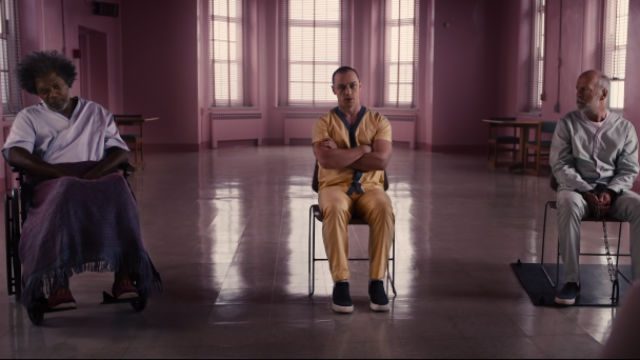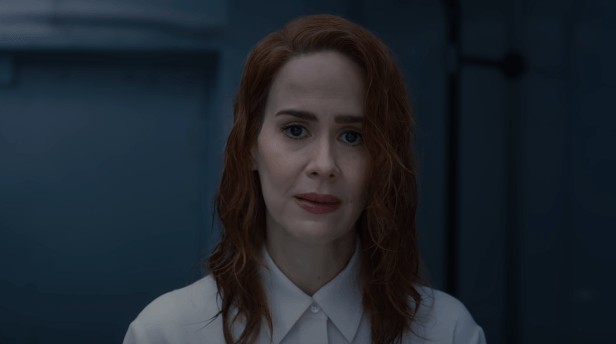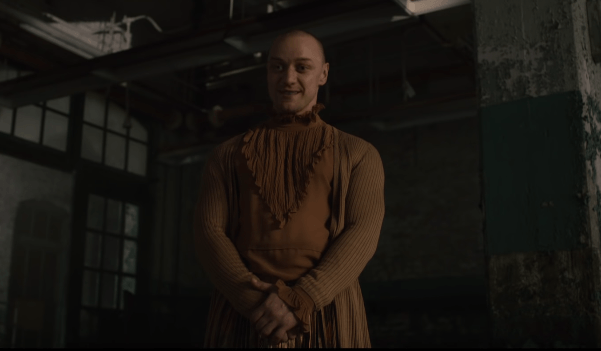SUMMARY
This is AI generated summarization, which may have errors. For context, always refer to the full article.

If there is one character in the failed but fascinating fairy tale riff Lady in the Water (2006) that proves to be the strangest in representing one of filmmaker M. Night Shyamalan’s ongoing obsessions and frustrations, it is the unamused critic played by Bob Balaban. Before he gets devoured by otherworldly creatures, he critiques the plot of the film he’s in. (READ: Shyamalan’s ‘Glass’ shatters North American box office)
In one clever fell swoop, Shyamalan expresses both his savage disdain for critics who oversimplify him and his art and his crystal clear understanding of the narrative tropes that allow him and his famous knack for plot twists and spectacular reveals to exist.
The critic returns
The critic returns in Glass in the form of Ellie Staple (Sarah Paulson).

Ellie is a doctor who has collected Kevin Wendell Crumb (James McAvoy), the man with multiple personalities from Split (2016), David Dunn (Bruce Willis), the lone survivor of a devastating train crash in Unbreakable (2000), and Elijah Price (Samuel L. Jackson), Dunn’s nemesis who makes up for his very fragile bones with a devilish knack for hatching grand plans.
She’s there to cure them of a particular psychological malady that supposedly grants them beliefs of having superpowers. Most of Glass happens inside a guarded facility where Ellie breaks down the grooves, patterns, and clichés of the comic book to disprove her patients’ dangerous delusions.
If anything, Glass feels less like the superhero films that crowd today’s cinemas and more a simplistic dissertation of its cultural cues as framed by the three-way collision between three characters that Shyamalan has patiently prepared during the last two decades.
It’s evidently ambitious stuff, almost to the point of being an absolute folly. What’s most apparent is how impertinent the film is. It is almost as if Shyamalan cares not for the pleasures of the genre he eagerly dissects and seeks only to exhaust it for his predictable tricks or to simply make it exhausting.
Since the film is driven by Ellie, with Kevin, David and Elijah merely serving as cornerstones to her discourse against comic book infatuations, the film comprises not of intense fist fights or ingenious narrative swerves.
Like Ellie’s subjects, Glass is stubbornly but intriguingly contained.

Three years after
That, however, isn’t the problem of Shyamalan’s film.
What is most concerning about Glass is how it feels devoid of the contemplative and moody aesthetic that made Unbreakable such an understated and very affecting father and son drama. Made only 3 years after the surprising success of Split, Glass is afflicted with a sense that it needs to ape the lack of a distinct look that pervades its immediate predecessor, which in fairness cost Shyamalan less money than Unbreakable.
Glass is flat a lot of times. When it finally does step out of the prison and into a parking lot where most of the film’s action happens, Shyamalan’s lackluster camera fumbles more than it indulges in the sudden mayhem.
Perhaps Shyamalan intends that Glass be the antithesis to the wild invasion of superhumans of almost all cultural outlets. When he released Unbreakable, it was a brash experiment to ground comic books closer to the contemporary human condition. Nowadays, superhero films race to resemble current realities, with many famous comic book heroes abandoning their aliases for their real names.
Maybe it is intended that Glass be as visually unspectacular as possible, to differentiate it from the CGI-infested flicks that it attempts to be an alternative of.
Overwhelming zeitgeist
In any case, Glass is far from being either eye-candy or a mindless delight.
It feels more like a reaction to an overwhelming zeitgeist. The film, like its 3 captured characters, has delusions of grandeur. It isn’t as groundbreaking as it imagined it could have been, yet it is undeniable that there is not just a lot of thought but also heart in its labyrinthine but tireless exploration of our collective fascination to be extraordinary.
Not even the greatest critic can deny that. – Rappler.com

Francis Joseph Cruz litigates for a living and writes about cinema for fun. The first Filipino movie he saw in the theaters was Carlo J. Caparas’ Tirad Pass.
Since then, he’s been on a mission to find better memories with Philippine cinema.
Add a comment
How does this make you feel?
There are no comments yet. Add your comment to start the conversation.